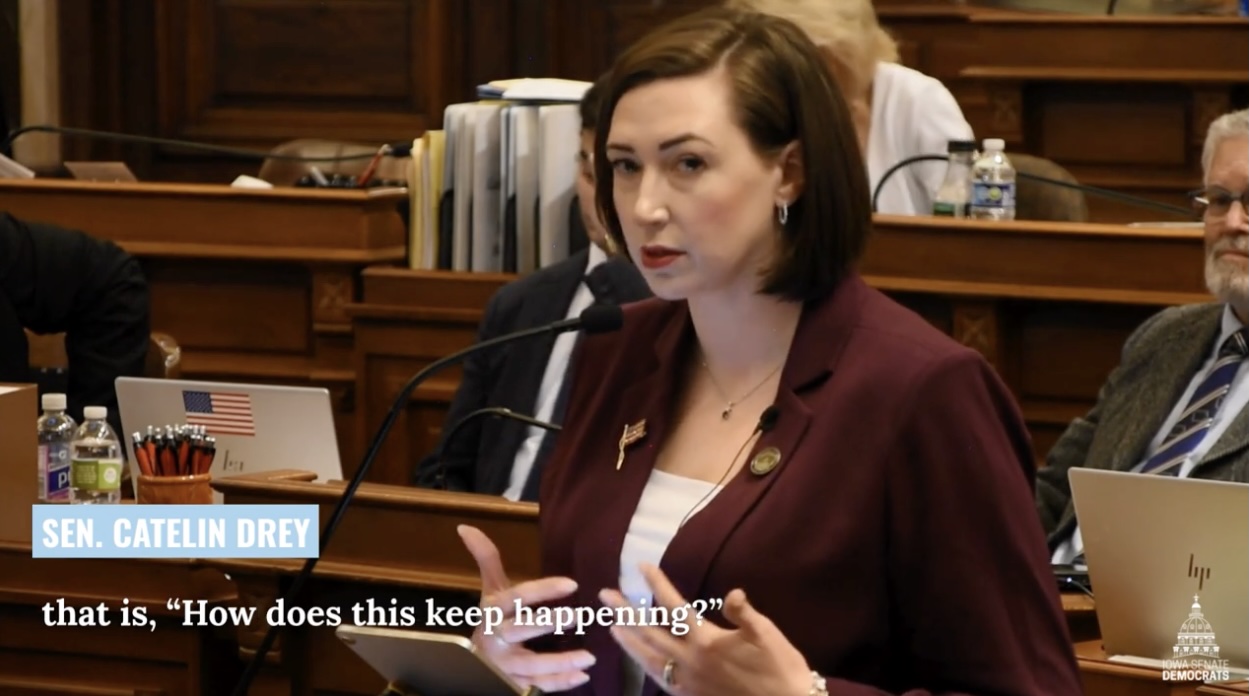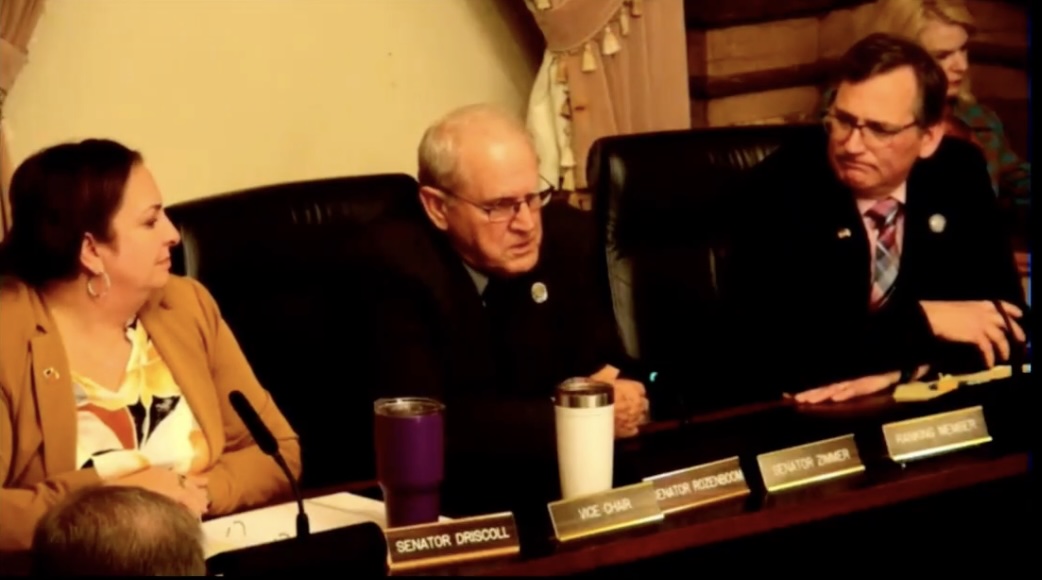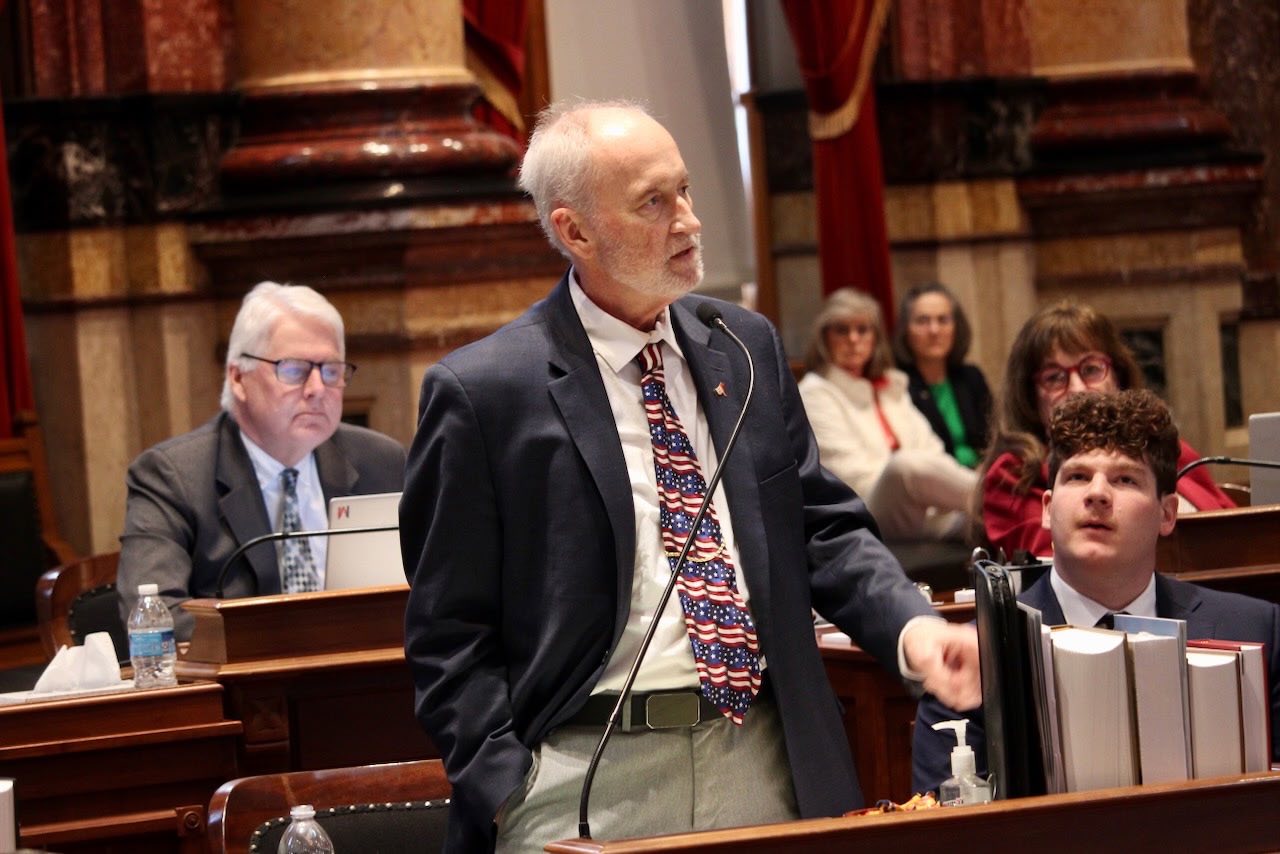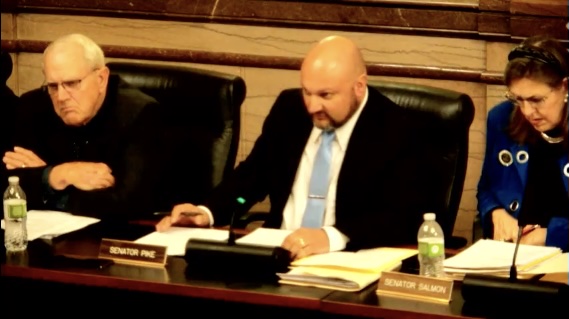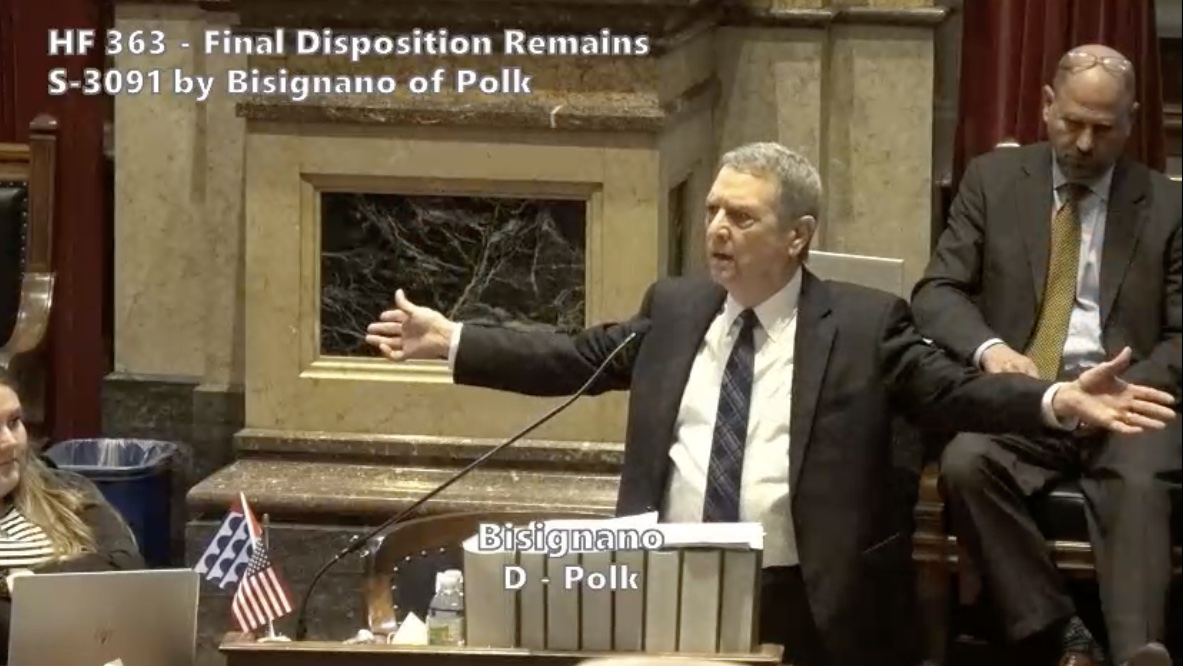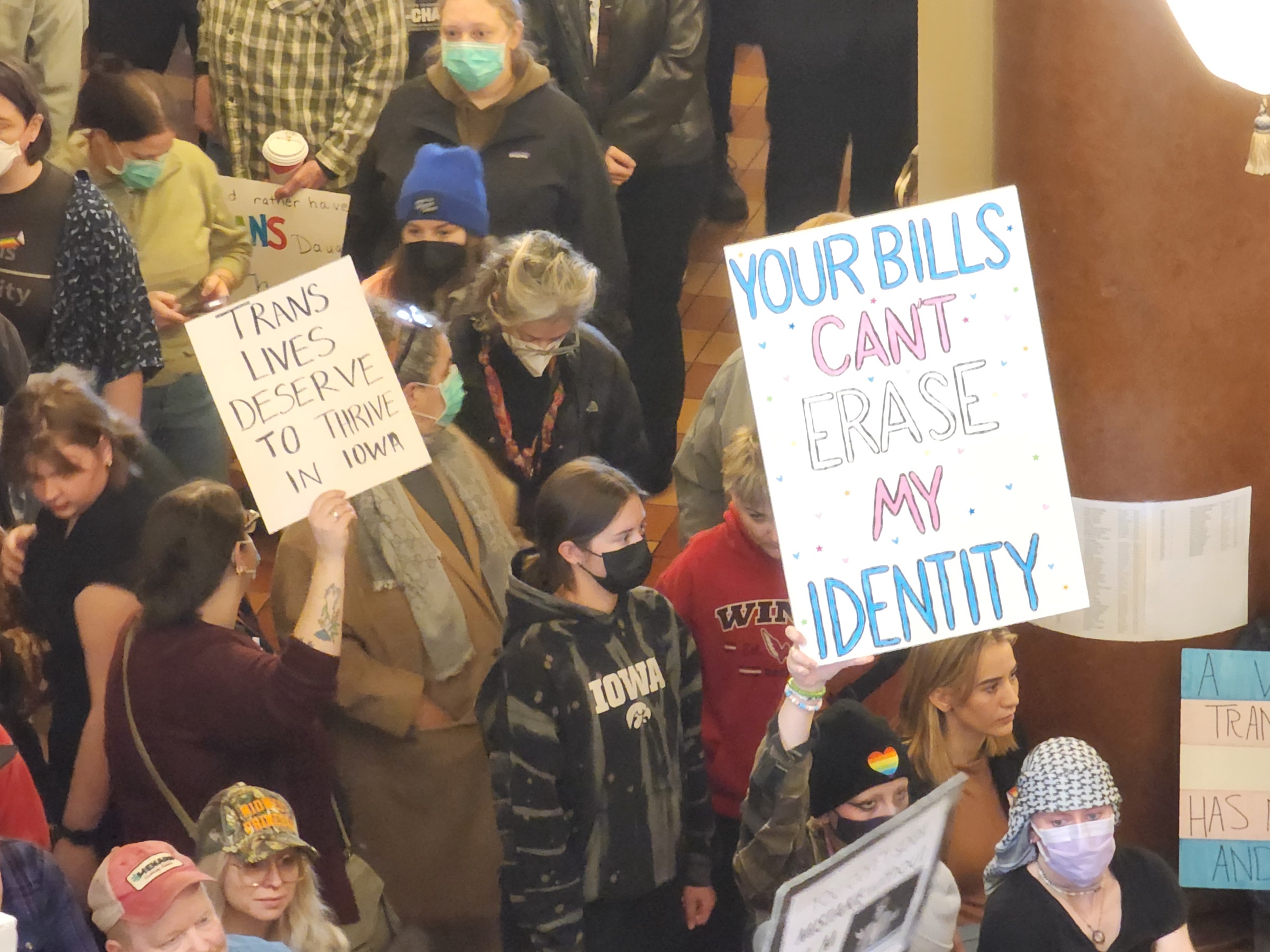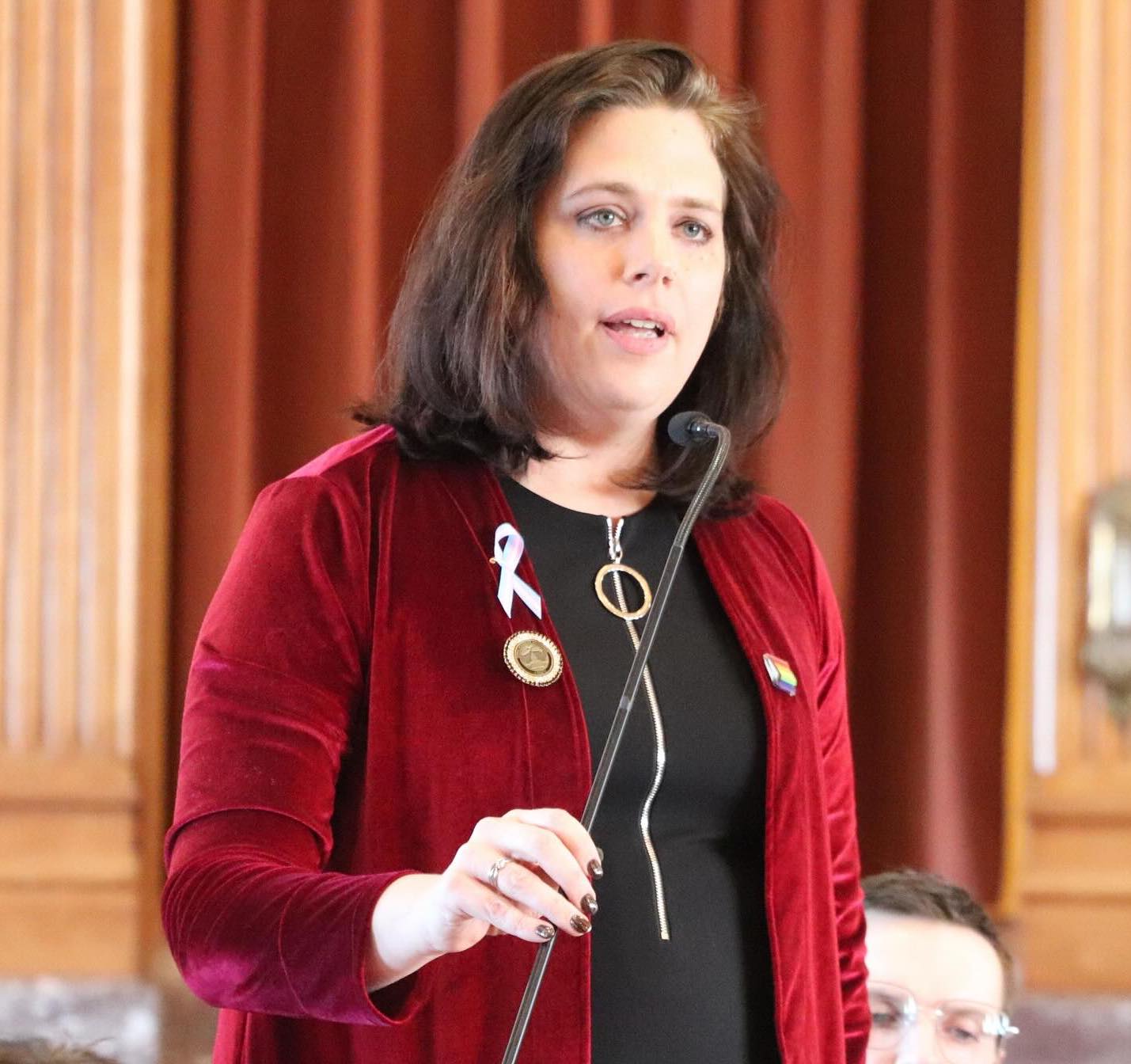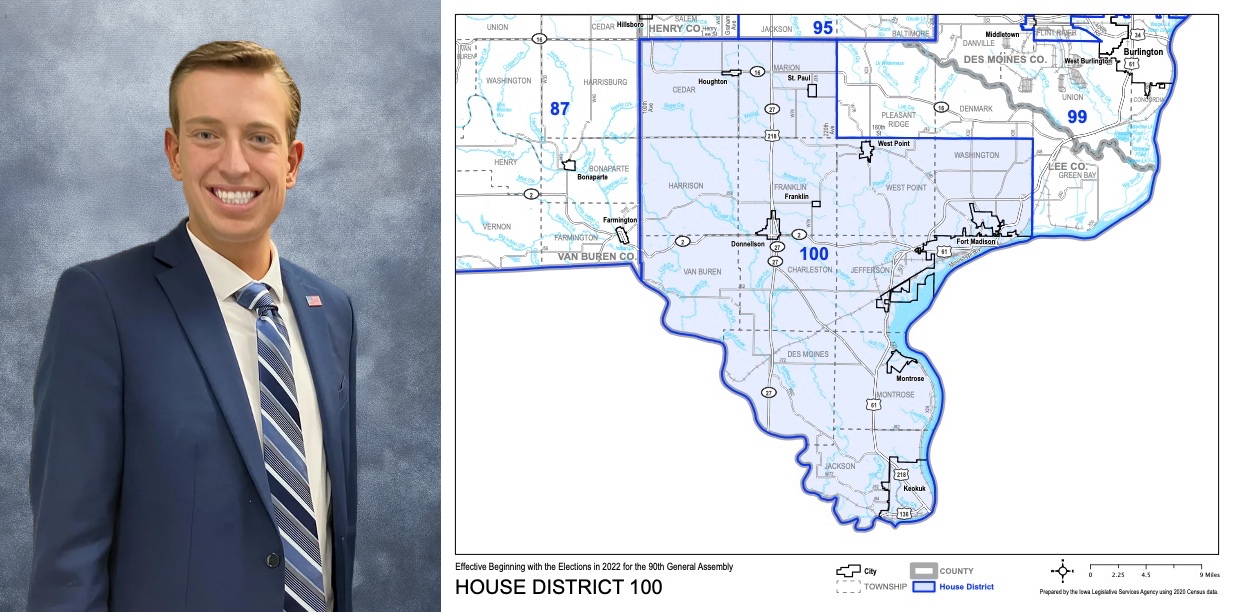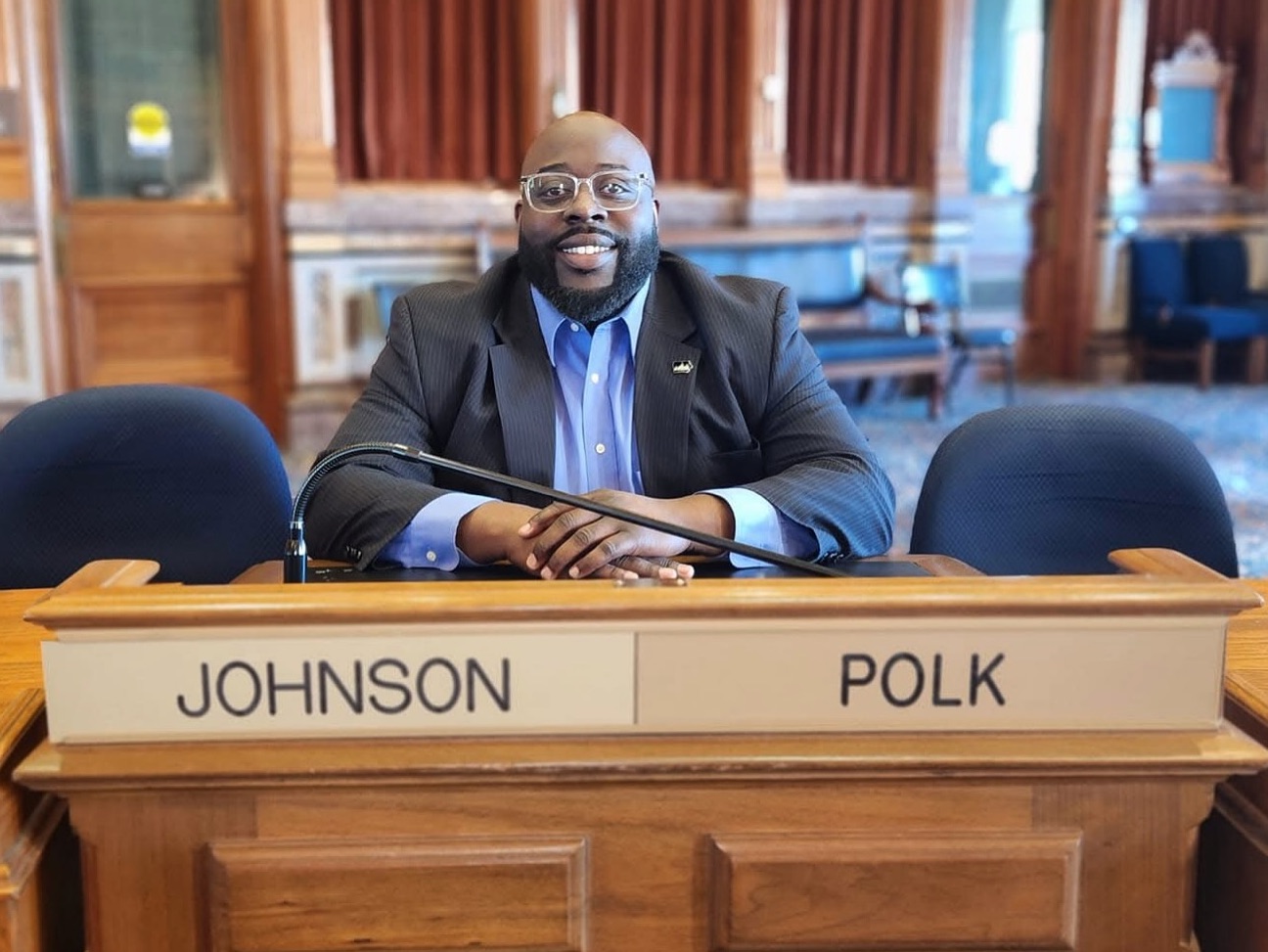The Iowa Senate reconvened on January 12 with a different look: a new majority leader (Mike Klimesh) and a changed balance of power: 33 Republicans and seventeen Democrats, down from a 34-16 GOP majority for most of the 2025 session.
Seven senators (four Republicans, three Democrats) were elected to the chamber for the first time in 2024, and three more won their seats in special elections during 2025.
Fourteen senators are women (eight Democrats and six Republicans)—that’s one more woman than last year, since Democrat Catelin Drey won the race to succeed the late Rocky De Witt in Senate district 1, and Renee Hardman won the race to succeed the late Claire Celsi in Senate district 16. The high point for women’s representation in the Iowa Senate was in 2023 and 2024, when the chamber had 35 men and fifteen women.
Hardman is the first Black woman to serve in the Iowa Senate and only the third African American ever elected to the chamber. Democrat Izaah Knox is also Black. The other 48 senators are white. No Latino has ever served in the chamber, and Iowa’s only Asian-American senator was Swati Dandekar, who resigned in 2011.
In 2023, Democrat Janice Weiner became the first Jewish person to serve in the Iowa Senate since Ralph Rosenberg left the legislature after 1994. She became the first Jewish person to lead an Iowa legislative caucus when her peers elected her minority leader in November 2024.
Democrat Liz Bennett is the only out LGBTQ member of the Iowa Senate.
I enclose below details on the majority and minority leadership teams, along with all chairs, vice chairs, and members of Iowa Senate committees. Where relevant, I’ve mentioned changes since last year’s legislative session. Although there hasn’t been as much turnover as the Iowa House saw during the interim, Klimesh did make quite a few changes in the committees compared to last year. He took all committee assignments away from one Republican (Doug Campbell) and took certain positions away from Kevin Alons, Mark Lofgren, Sandy Salmon, and Dave Sires.
Some non-political trivia: the 50 Iowa senators include four men named Mike (three Republicans and a Democrat), two Toms (a Democrat and a Republican), a Dave and a David (both Republicans), and two men each named Jeff, Mark, and Dan (all Republicans).
Continue Reading...


